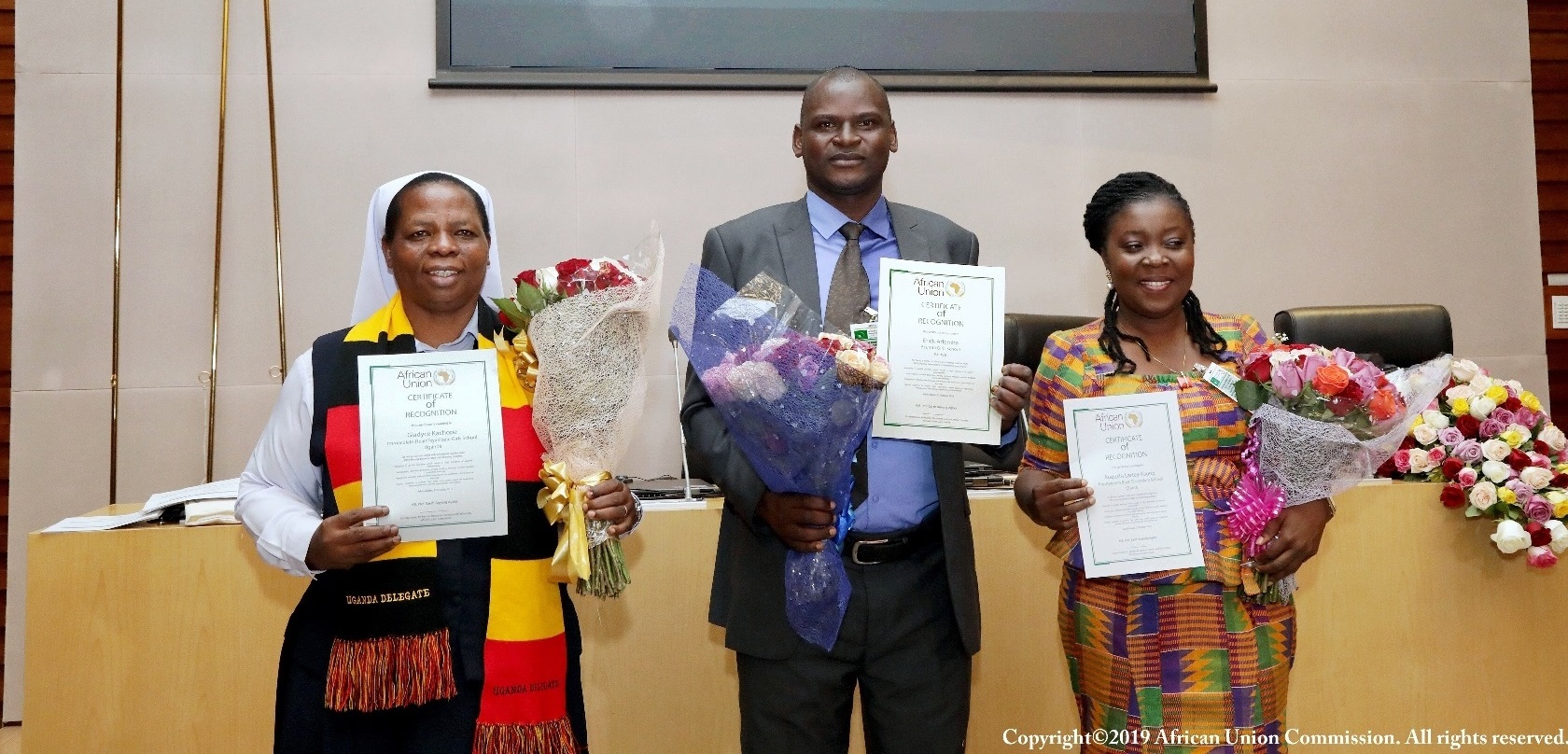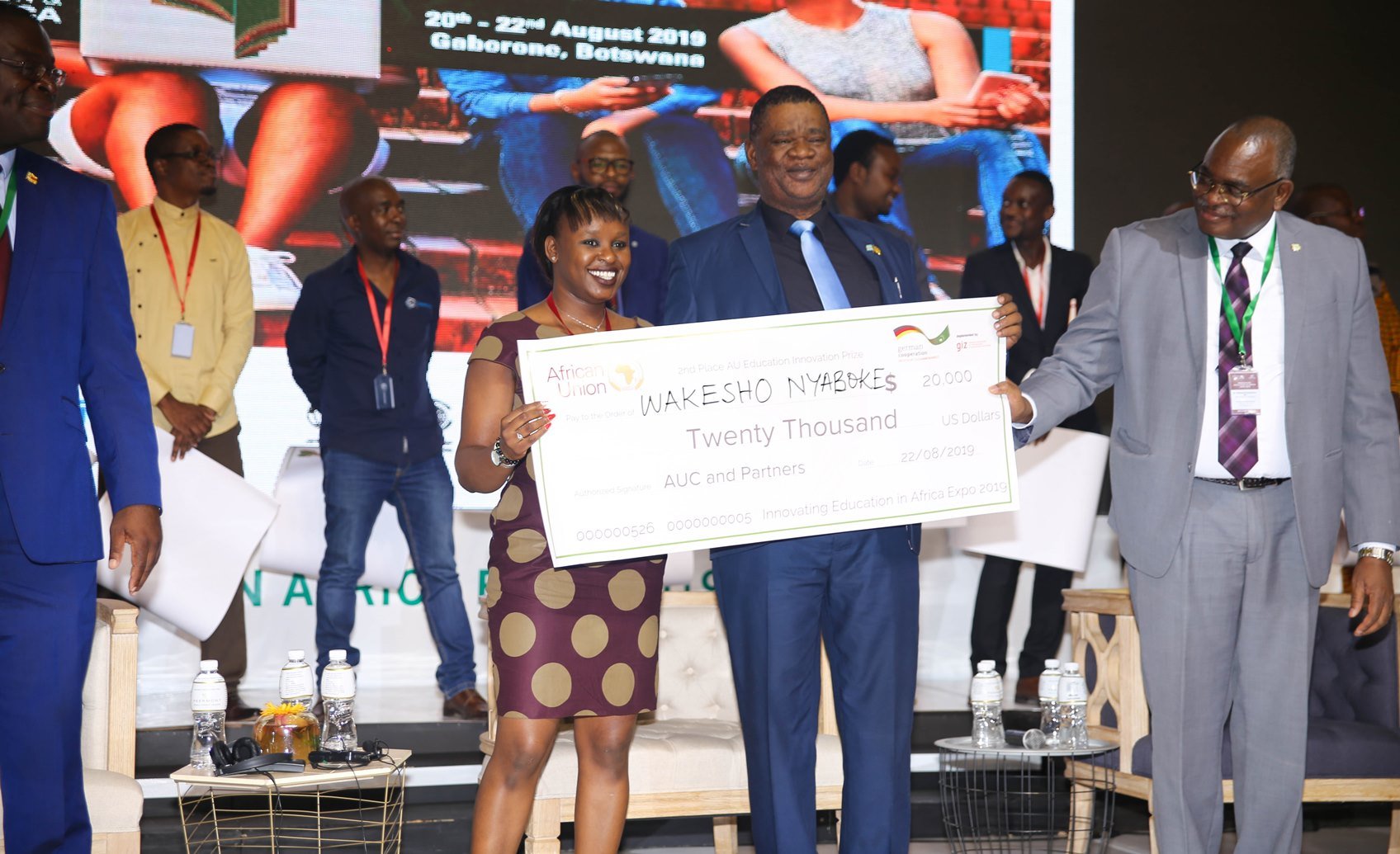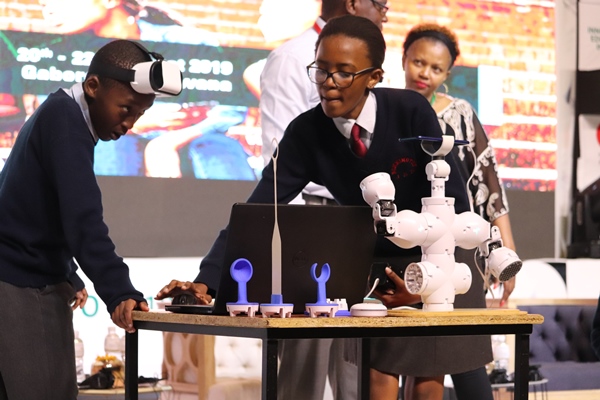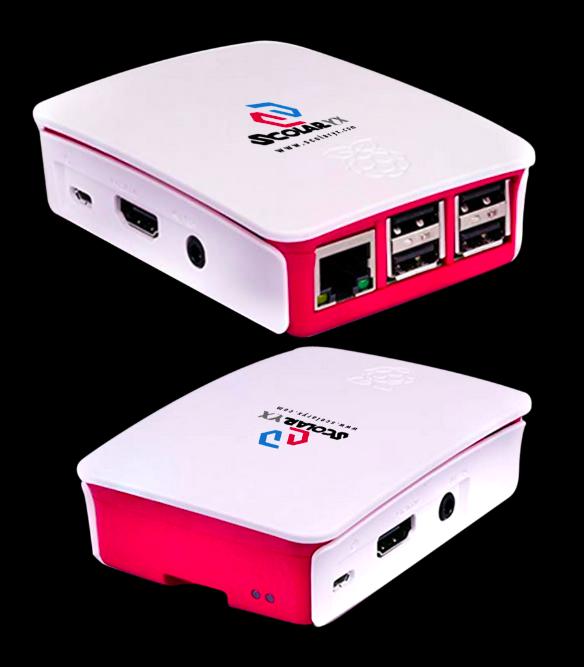
Title of Innovation: SCOLARYX Educational Box
Year of implementation: 2017
Implemented by: SCOLARYX
Country/Countries where the Innovation is being implemented: Cameroon, Chad
Problem being solved
In Cameroon, 4 over 10 young people are out of school, tuition fees are extremely high at around 85% of GDP per inhabitant, only 54% of teachers deployed in secondary education are qualified, the security context comes more tarnish the following statistics especially as: The North is plagued by the exactions of terrorism, the East is stormed by refugees from the Central African Republic, the North-West and South-West are the scene of instabilities due to separatist inclinations. In addition, secondary education must also raise the issue of equity and quality. All that precedes depicts a reality: Quality Education is not yet effective.
Description of innovation
Our educational Box is a micro server containing the equivalent of 10,000 lessons available offline. Its administration is relatively simple and can be done by the Head of the School, the learner or a Parent. The Box SCOLARYX contains a Wifi card through which you can connect with a computer and access educational content without internet. This lightweight, powerful and inexpensive micro server locally contains the SCOLARYX Educational Software completely developed by our Engineers as well as all the educational contents necessary for the learners. The Scolaryx mini box also has HDMI access for classroom class screenings.
SCOLARYX can be used with a mobile phone or tablet as well, and thus enjoys the intuitiveness of mobile technologies to enable learners to feel the reality they are entering in the classroom. The diversity of educational resources (videos, animations, sounds, quizzes, games, etc.) offers learners an exhilarating learning experience.
Outcomes and Impact
In Africa, internet access remains difficult, especially in areas with low enrollment rates. Educational Box SCOLARYX is deployed to allow students to have local access to lessons and exercises without need to be connected to the internet.
To date, SCOLARYX is deployed throughout the Cameroonian territory and a pilot version is being tested in N'Djamena (Chad). Nearly 1000 learners trust us (mostly from risky areas), and have access to more than 10,000 educational resources including audio lessons, texts, videos. We have a network of 30 teachers who ensure the development of courses and remote monitoring of learners.
Potential to be scaled and replicated
The Core of Scolaryx is a software developed by our engineers. It has been designed with the flexibility, adaptability and intuitivity necessary to make it reproducible whatever the context and the educational curriculum. This core does not undergo any variation from one country to another. We deploy the same design and build technologies and the same electronics to build the Box.
The only change to move from one country to another lies in educational programs that vary. It is then important to set up a network of Teachers for the elaboration of course contents according to the specificities of the pedagogic curriculum of each country.
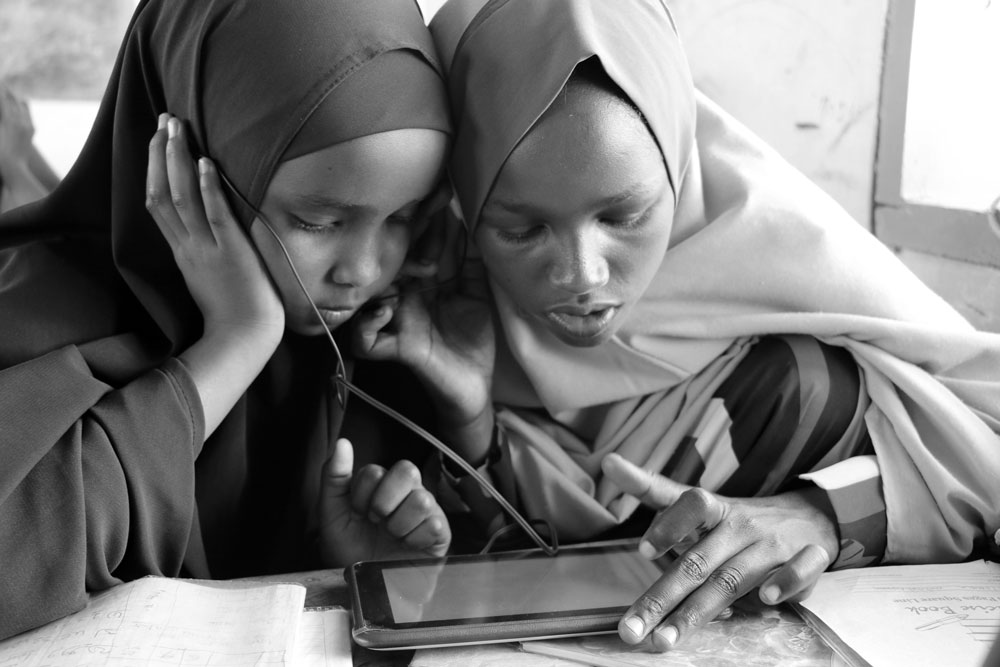
Title of Innovation: Hadithi Hadithi!
Year of implementation: 2017
Website: https://e-limu.org
Implemented by: eLimu Kenya
Country/Countries where the Innovation is being implemented: Kenya, Somalia, Uganda
Problem being solved
The foundation to every child's education is literacy, and yet even in the most developed countries, like South Africa and Kenya, only 25-30% of children in Class 4 can read fluently. This means that their education will be stunted, and they won't progress to secondary school.
If we can improve reading and writing right from the start of school, we will see benefits throughout a child's school life, and later in society and the economy at large.
Description of innovation
"Hadithi Hadithi!" means "Story Story!" and it's what a Kenyan grandmother calls to her grandchildren when she calls them around the fire to tell them a story. It's the name of our literacy app for children aged 5-8, and it's made up of hundreds of stories, written by teachers, read by actors, and illustrated by artists all over East Africa.
With each story is a set of comprehension, spelling and letter tracing apps that combine to make up the Reading to Learn pedagogy, shown to improve progress in reading and writing four times faster than traditional methods.
By teaching children to read in our own languages, by creating stories and illustrations that we can relate to, read in voices that are familiar to us, we can help millions of children learn to read and write fluently all across Africa.
Outcomes and Impact
Over the last two years, we have created five literacy apps in different languages for schools in Kenya and Uganda, that are now being used by tens of thousands of children. Our android version helps parents read with their children on their phones.
Last year, we created the first Somali literacy app which was designed for Dadaab Refugee Camp, with stories from their community. It was used by thousands of youth who had missed out on school.
Incredibly, we saw over four times faster improvement in reading fluency in our community education centres compared to other centres. Now that app is used in over 100 schools across Somalia.
Potential to be scaled and replicated
When we began this project, we tracked down a US company that had similar apps to teach English. They wanted $1 million to create similar apps in different languages.
Our technology allows us to create apps in any language for just $40,000 less than 5% of what it would cost just five years ago. By using newer technologies and engaging Kenyan developers we can create world-beating apps right here.
We are already piloting in two provinces in South Africa that will be the foundation for Zulu and Xhosa apps, and we plan Nigerian versions in Hausa, Yoruba and Ibo. By 2022, there will be 10 Hadithi Hadithi! apps all across Africa.
Page 7 of 7


